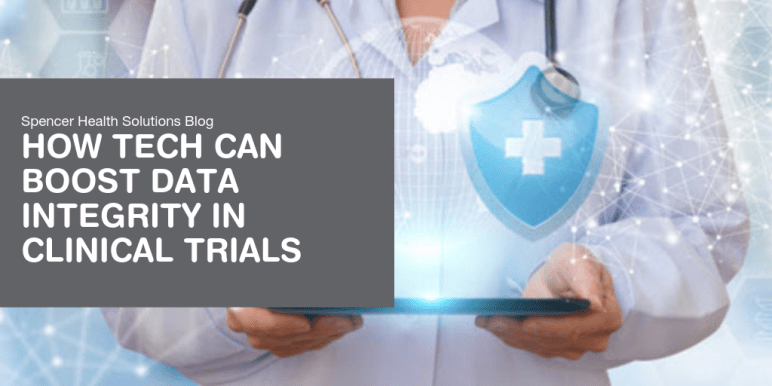By Alan Menius, Spencer Health Solutions

How Tech Can Boost Clinical Trial Analytics
Clinical trials are only as good as the data collected during the trial. Introduce even the slightest threat to your data’s integrity, and you’re giving yourself a challenge that could mean the costly difference between success and failure in any trial.
As trial sponsors have more disparate data sources at their disposal, it’s essential to account for this new complexity throughout the data life cycle. Fortunately, if sponsors spend some time at the outset considering where trouble may lurk, they can greatly reduce their risk of failing to maintain data integrity. It all begins by planning and getting the data collection phase right.
More Real-World Data Available
The Food & Drug Administration’s real-world data definition gives us a launching pad for looking at the first, most critical step in maintaining data integrity – collecting patient data. The FDA notes the increasing availability of electronic health records, patient-generated data (including in-home settings) and other sources as potentially enabling better design and completion of clinical trials.
Outgoing commissioner Scott Gottlieb addressed the exploding number of data sources in a recent speech, as reported by Health IT Analytics: “Digital technologies are one of the most promising tools we have for making health care more efficient and more patient-focused. This isn’t an indictment of the randomized controlled trial. Far from it.”
Key Questions About Data Collection
What, then, should trial sponsors look for as trials become more complex, with more data sources? Here are the key challenges to data integrity that trial sponsors should address as they collect patient data.
What data do we need? We certainly don’t have a shortage of possible sources of patient information. From old-fashioned patient diaries to mobile apps, wearables, and in-home devices, trial sponsors can gather troves of patient data.
But just because you can collect it doesn’t mean you should. In designing a trial, begin your data journey by deciding what data is truly necessary — and what sources provide the most reliable form of that data. Focus your efforts on collecting that information and maintaining its integrity throughout the process of data management and reporting. Seeking patient data that isn’t really necessary just adds risk and complexity to a process that’s already complex enough.
Where will it come from? Not only are there more data sources to account for, there are more patient locations to consider. In particular, siteless, or direct-to-patient, clinical trials are becoming much more common. The traditional method of having patients come into the clinic works well for data collection. It doesn’t work as well for the patients themselves. For some, leaving their home to spend time in the clinic creates logistical, transportation and cultural barriers. Plus, data captured in the clinic provides only one snapshot in time and doesn’t represent the real-world environment of patients’ homes.
The emerging method is to gather patient data no matter where the patient is, made possible by all of the relatively new digital sources of information. But this introduces additional risks if the patient’s environment at home or while traveling makes it difficult to gather and report accurate data.
How easy will it be for patients to comply? Of all data integrity considerations, this is the one that’s most likely to pose a challenge for trial sponsors.
On the one hand, some devices and digital tools today are sophisticated enough to replicate what takes place in the clinic with a high degree of accuracy. On the other hand, that sophistication makes it more likely that patients will encounter technical or other hurdles that could lead to poor or absent data.
The best data collection methods are those that patients will find easy to use and will stick with. It’s essential to consider the complexity of the devices and apps you’re asking patients to use.
Data Integrity: The First Consideration
Trial sponsors can reduce their risks by keeping data integrity in mind throughout the process of collecting, managing, and reporting on the data. The time to begin thinking about data integrity is at the very beginning when considering the processes and technologies that will help lead to a successful trial.
By asking and answering these key questions about data sources and collection, you can achieve a high level of confidence that the data you’ve gathered is the data that will yield accurate results.
Alan Menius is Chief Scientific Officer at Spencer Health Solutions.
